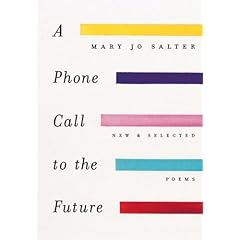from the New York Times
Formalities
 Back in the 20th century, when such things seemed to matter, poets argued about the virtue of meter and rhyme. Occasionally the debate produced insights of lasting consequence, like Robert Frost’s snarky metaphor for free verse (“playing tennis with the net down”) and Charles Wright’s brilliant response: “the high wire act without the net.” But the debate was perpetuated more often by tribal loyalties than by artistic necessity. An argument that forecloses possibilities for art — that says X is good because Y is bad — can rarely be trusted.
Back in the 20th century, when such things seemed to matter, poets argued about the virtue of meter and rhyme. Occasionally the debate produced insights of lasting consequence, like Robert Frost’s snarky metaphor for free verse (“playing tennis with the net down”) and Charles Wright’s brilliant response: “the high wire act without the net.” But the debate was perpetuated more often by tribal loyalties than by artistic necessity. An argument that forecloses possibilities for art — that says X is good because Y is bad — can rarely be trusted.
Mary Jo Salter came of age as a poet in the 1970s when two tribes, the Language poets and the New Formalists, were sparring. The Language poets (named after a magazine called Language) represented a new surge of experimental writing, while the New Formalists (with whom Salter was associated) wanted to resist the influence of modernism, re-energizing poetry’s relationship not only to traditional form but to narrative. Like Salter, many of the New Formalists modeled their work on a strategically narrowed version of Elizabeth Bishop, a poet who wrote both free and formal verse with homespun virtuosity. But while Bishop continues to be read, the polemics associated with both the New Formalism and Language poetry feel dated, part of the niggling history of taste rather than the grand history of art.
Salter’s latest collection, “A Phone Call to the Future,” offers severely winnowed selections from her previous five books along with an ample collection of new poems. What she has omitted is as revealing as what remains. While her first book, “Henry Purcell in Japan,” is introduced here with a poised villanelle about King Lear’s daughters, it once began with a poem far more suggestive of Salter’s sensibility — a sensibility repulsed by gory images of the dead Jesus in a Catholic church, preferring to dwell in an aesthetic realm of pure spirit: “His wounds look fresh, but it’s not this sight / that shocks me so much as His man-made skin: / He’s waxen, slick as a mannequin.”
 This poem, “For an Italian Cousin,” is cast in envelope rhyme (abba), the form that Tennyson, most elegant of English poets, employed in his long elegy “In Memoriam.” Reading the elegy, Verlaine said that Tennyson had a lot of reminiscences when he should have been brokenhearted. Salter’s elegance feels similarly motivated by a distaste for the unseemly.
This poem, “For an Italian Cousin,” is cast in envelope rhyme (abba), the form that Tennyson, most elegant of English poets, employed in his long elegy “In Memoriam.” Reading the elegy, Verlaine said that Tennyson had a lot of reminiscences when he should have been brokenhearted. Salter’s elegance feels similarly motivated by a distaste for the unseemly.
But what makes Salter worth reading — what makes her stand apart from the merely polemical elegance of the New Formalism — is that she herself is appalled by this distaste. While many of her poems are burdened by a need to dispense wisdom (“love dooms us to earn / love once we can speak of it”), her best are driven by a compulsion to confront the inexplicable. Her second collection, “Unfinished Painting,” includes “Elegies for Etsuko,” a long poem about a friend who committed suicide.
And now love’s pain, your curse,
is all I have. Forgive me … What worse
punishment for suicide
than having died?
Here, the blunt rhyme between “suicide” and “died” makes the poem’s confrontation with mortality feel witheringly unavoidable. Rather than dispensing wisdom, Salter asks eviscerating questions.
[ click to view full article in the New York Times ]
